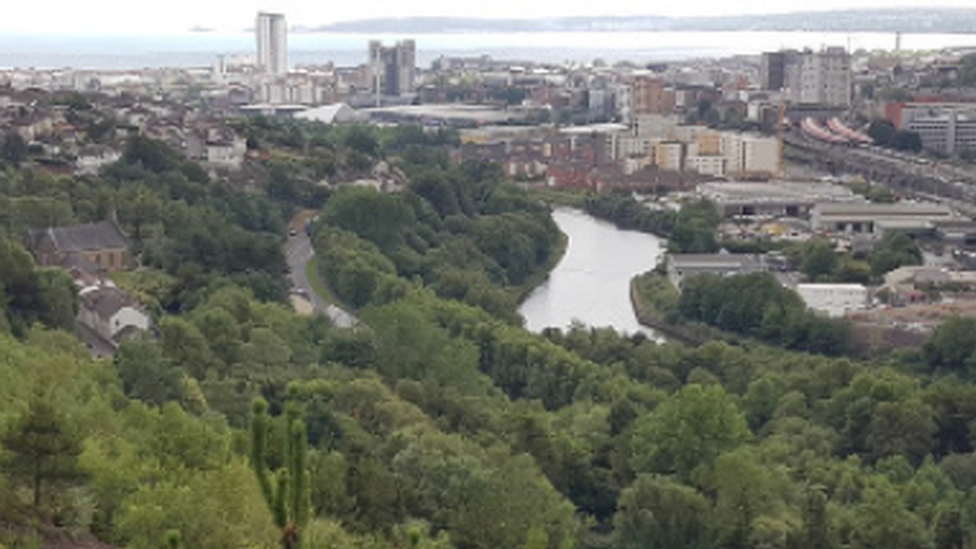Carbon neutral? Cardiff can show the way, says city leader
- Published
Cardiff: Can it become carbon neutral in a decade?
Wales' capital can "set an example" by becoming carbon neutral within a decade, Cardiff council's leader has said.
But Huw Thomas admitted the target set out in a new environmental plan was a "significant challenge".
Wales and the UK are not expected to meet a similar goal to slash emissions before 2050.
But Mr Thomas has urged the city's residents and businesses to "push ourselves further".
"Warm words are all very well but we wanted to get tough about how we change behaviours as well as council policy," he said.
To be carbon neutral means to balance your emissions - not pumping out any more climate warming gases than you can soak back in via trees or new technologies.
The One Planet Cardiff strategy, setting out how the city can aim for this, is set to be approved by the council's cabinet later this week, external.
It warns that climate change could have "profound effects" on the coastal city as sea levels rise, something Mr Thomas said made him "anxious".
The new strategy includes more green electricity and heating schemes, increased tree cover and city farms to supply food.
A five month consultation has also been launched to seek ideas from the public.
Since 2005 Cardiff council's direct carbon emissions have reduced by 45%, while the city's emissions from housing fell by 38% and in the industrial and commercial sector by 55%.
All of Wales' councils are working towards a Welsh Government target for the public sector to be carbon neutral by 2030.
It means reducing emissions dramatically in the areas they have control over.
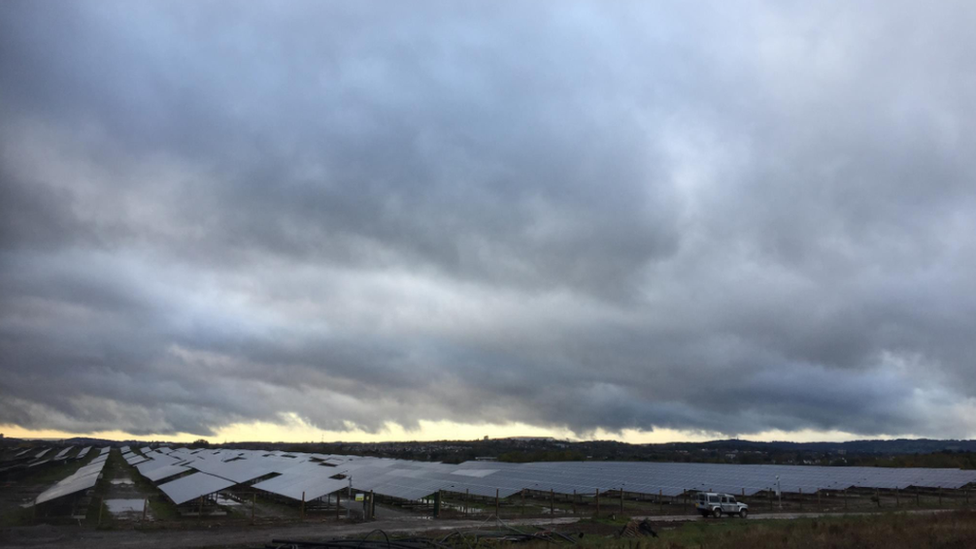
A new solar farm has been built on the old Lamby Way landfill site
But Cardiff's leaders said they want to go further, urging businesses and the public to work with them to ensure the city as a whole ends its contribution to global warming by the same year - 20 years ahead of national targets for Wales and the UK.
"It's a significant challenge, undeniably," Mr Thomas said.
"The council has made steady progress over the last five years and we have a clear sense of what's achievable - we think we can get there as a council.
"This is laying down the challenge really to the people of Cardiff, the businesses and other public sector organisations in the city to work with us so that together we can push ourselves further and do this thing that we know is long overdue.
"We know our climate is changing, we know that our lifestyles are unsustainable so the time for change is now."
He launched the strategy at the site of the council's new 9MW solar farm.
Built on the old Lamby Way landfill site - which is the equivalent in size to 20 Principality Stadium pitches - it has the ability to generate enough green electricity to power approximately 2,900 homes for the next 35 years.
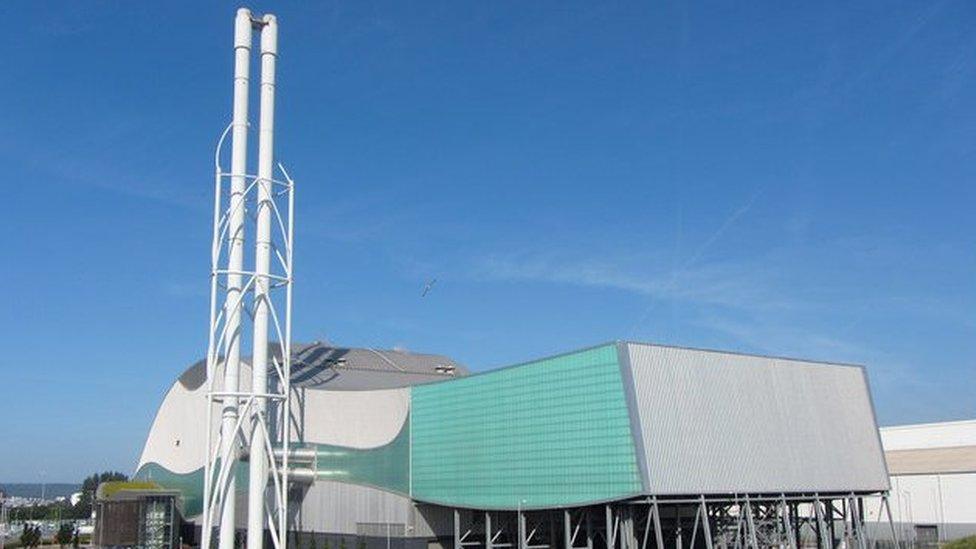
Heat generated by a waste incinerator will help warm buildings in the city
It is one of a number of measures that form part of the strategy, which also includes using "waste heat" from an incinerator in Cardiff Bay to warm buildings throughout the city.
Tree canopy coverage will be increased by 25%, and historic canals in the city centre redeveloped as part of a sustainable water management scheme to avoid flooding.
Cabinet Member for Clean Streets, Recycling and the Environment, Michael Michael, said: "The statistics show that Cardiff is currently a three-planet city.
"This means, if everyone in the world consumed natural resources and generated carbon dioxide at the rate we do in Cardiff, then we would need the resources of three planets to enable us to carry on as we do.
"Quite clearly something has to give. I want people to join us on this journey as we aim to build a better, greener future.
"This document builds on the great ground we have covered so far in driving the city towards a carbon neutral future, but highlights that there is still a long way to go."
What else is in the strategy?
1,500 sustainable homes across the city and a zero-carbon pilot housing estate at the site of the old Eastern High School
A cross city train-tram service is proposed and new park & ride facilities at junctions 32 and 33 of the M4
A business case for a congestion charge in the city and remodel roads in the centre to favour buses, cyclists and pedestrians
"Green walls" to absorb CO2 gas will be planted outside schools
A "major tree planting exercise" is proposed, with the potential for a local tree farm to supply saplings
A hydroponics growing unit will be set up in Bute Park using a shipping container, growing the equivalent of 3.5 acres of food
Council-owned land made available for community groups to grow food with the possibility of a "food park" being explored
Cardiff market will be revamped into a "sustainable and local food market"
All single-use plastics will be removed from council venues with plans to replace green bags provided to residents for recycling with reusable sacks
- Published9 October 2020
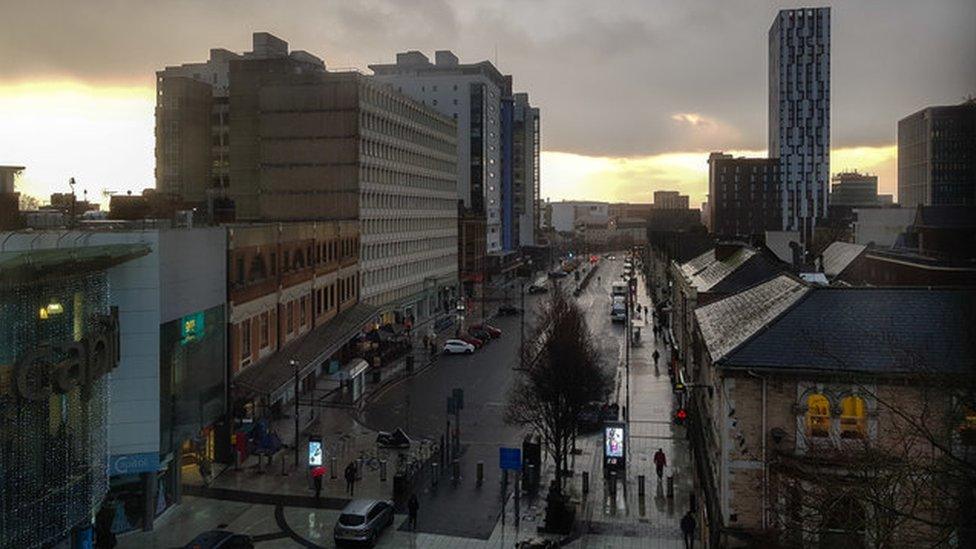
- Published13 August 2020

- Published15 January 2020
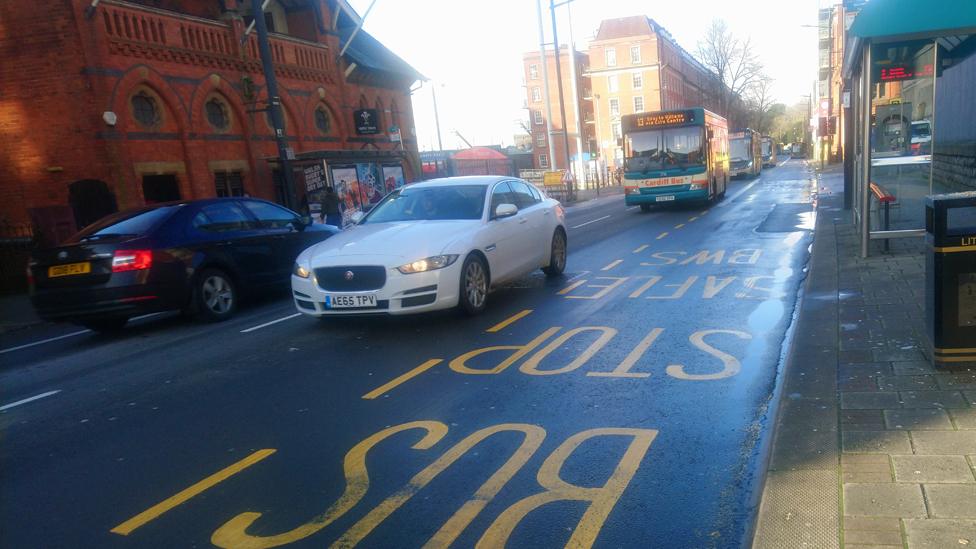
- Published18 September 2019

- Published14 June 2018

- Published19 April 2018

- Published6 November 2019
